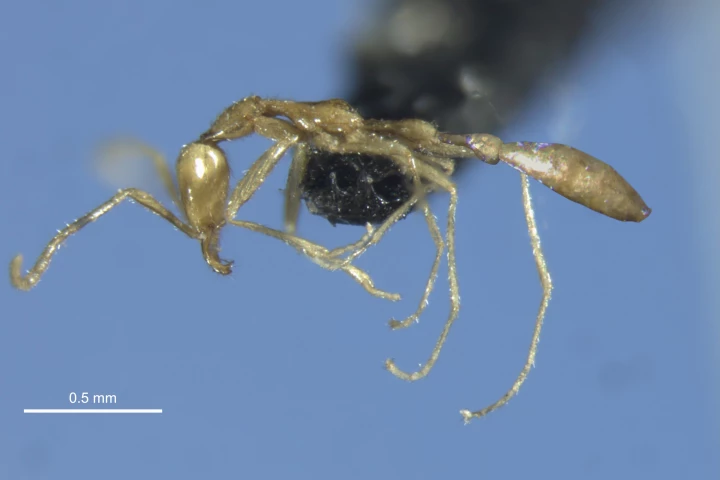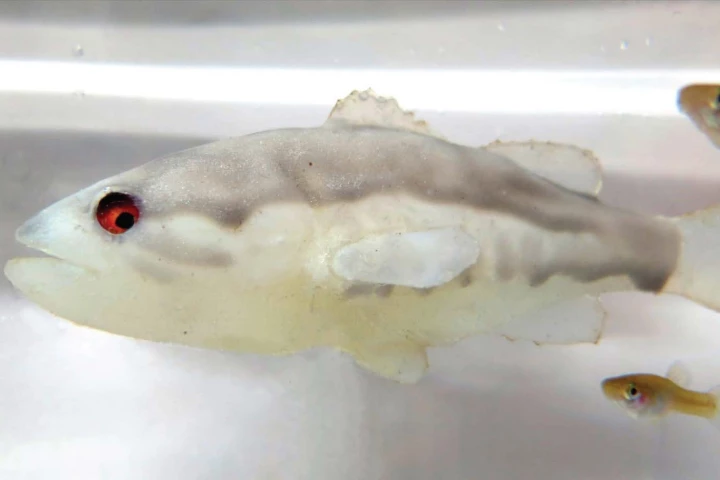University of Western Australia
-
In the first study of its kind, excess abdominal fat has been associated with chronic pain, but the good news is that losing weight that can reduce waistlines could help relieve widespread musculoskeletal conditions and greatly improve quality of life.
-
If you find yourself in the Australian port city of Albany and spot a humongous yellow machine bobbing in the waves of King George Sound, don't be alarmed. It's just a generator prototype making a case for renewable wave energy.
-
A new ant has been named after the creepiest of all Harry Potter villains, Lord Voldemort. Like the lord, the ant is pale, slender and lives in the dark – unlike Mr. Voldemort, however, the ant did not give Harry his lightning-bolt forehead scar.
-
A new study has found that exposing babies to prescription opioids while they’re in the womb can increase their risk of developing immune-related conditions – particularly infections, eczema and asthma – in early childhood.
-
Researchers have discovered the largest plant in the world – a meadow of seagrass off the coast of Western Australia that covers a total of 200 sq km (77 sq miles). The entire expanse has grown from just one seedling, spreading by cloning itself.
-
The mosquitofish is a harmful invasive species in much of the world, outcompeting and overwhelming native fish and other aquatic life. Scientists are now working on a solution to the problem, in the form of a robotic bass.
-
A new type of gravitational wave detector has recorded two rare events that may be signals of dark matter or primordial black holes. These high-frequency gravitational waves are beyond the range of most detectors and have never been recorded before.
-
Hassell has designed UWA's new Faculty of Engineering and Mathematical Sciences building. The project is defined by a shading screen of metal "petals." It also boasts sustainable technology, such as solar power and an advanced monitoring system.
-
Imagine getting a flat tire, and just smearing on a chemical that makes the rubber meld seamlessly back together. That’s the kind of breakthrough researchers are now reporting, with a new material made of waste products and easily recyclable itself.
-
Results from the world's first placebo-controlled clinical trial testing the efficacy of medicinal cannabis for chronic insomnia reveal statistically significant, and dose responsive, improvements to sleep quality using a novel CBD/THC formulation.
-
Gauging the maximum lifespan of wild animals can be difficult, as scientists are limited to examining whichever creatures they capture. Now, however, researchers have developed a method of determining a species' natural lifespan, based on its DNA.
-
Jetskis are a bit like motorbikes for the water. Hydrofoil boards and boats allow users to cut through and rise above the waves. The WaveFlyer merges the two, and throws in electric propulsion for a cleaner and quieter ride.
Load More











